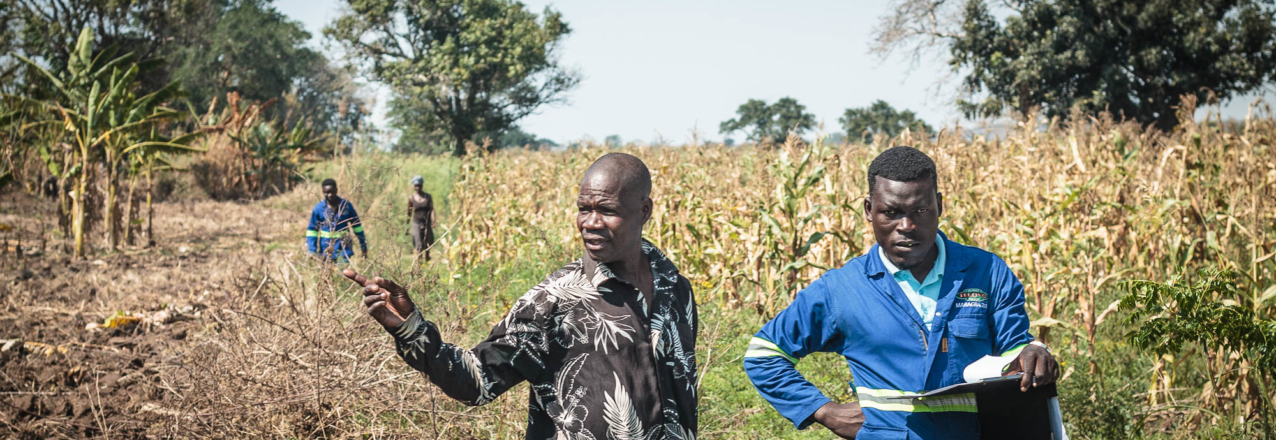Land titles ease conflicts with neighbours – and can cut down on problems including runaway fires
Originally published on the Thomson Reuters Foundation Website. (* Any views expressed in this opinion piece are those of the author and not of Thomson Reuters Foundation.)
By: Arlindo Macuva, a Mozambique-based project coordinator for the NGO Oram.
While fires in Australia and Brazil’s Amazon have captured headlines over the last few months, half a world away and far from the media spotlight, Mozambique was similarly ablaze.
The fires, combined with agricultural expansion and development, have reduced Mozambique’s forest cover by three million hectares – about 11% – from 2001 to 2018, according to the United Nations.
But a pair of innovative land-rights programs, funded by the U.S. Agency for International Development (USAID) and Britain’s Department for International Development (DFID), are helping to clarify what is fueling the fires and are providing guidance on how the blazes might be battled.
For years, farmer Calisto Luis Vasconcelos had a front row seat to the fires.
Six times he lost his sugar cane crop to the flames.
“In the past, it has been out of control,” said Vasconcelos. “You would just see a wall of fire coming toward you with no warning”
In Mozambique, fires are a season problem. They are the result of traditional farming practices in which farmers burn their fields to prepare them for the next planting season.
Unclear and undocumented rights to land add fuel to the fire, because when farmers have unclear and undocumented rights to their land, they tend to have conflicts with neighbors.
The World Bank estimates that 90% of rural land in Africa is undocumented, so, this is a common problem. The undocumented and unclear boundaries and the slim margin for survival for many rural families are a destructive combination.
Farmers often dispute boundaries with their neighbors with an eye toward claiming a few rows of their neighbor’s corn or cane for themselves. With poverty and hunger high, every row counts.
These persistent disagreements over boundaries tend to sour relations between neighbors, sometimes bubbling over into outright violence. In this toxic environment, when a farmer decides to burn his or her field to make way for the next season’s crops, they may not warn a neighbor of their plans or take care to ensure that the fire does not spread.
This was the case in Vasconcelos’ community. He was locked in conflict with his neighbors over his prized parcel of land – four acres of extremely fertile land down by the river. “It is a good piece of land and everyone claimed it,” said Vasconcelos. “It was mine, but everyone wanted it.”
His neighbors would try to nibble away at the edges of his field, trying to get his land by taking a few rows of corn at a time. Their constant bickering meant that, in the words of Vasconcelos, “There were no rules. Things were out of control.”
And when his neighbors burned their fields, they gave Vasconcelos no warning and took no action to contain the fires to their own fields.
This began changing when DFID and USAID funded programs to help communities clarify and document their land. Working in different villages throughout the region, USAID and DFID’s partners have been teaching villagers how to use GPS-enabled tablets and to document the boundaries of each person’s fields.
Farmers receive land certificates with maps of their property, a calculation of acreage, their name, and a list of community witnesses – providing documentation of their land use. Now, everyone in Vasconcelos’ village, Enhumua, has agreed on where their fields end and their neighbors’ begin.
Vasconcelos and his neighbors who have never had titles or deeds – often inheriting their land from their parents or buying it on a handshake – finally have the security of documentation that the land they farm is theirs.
Local government leaders Oliveira Pinto and Martin Gabriel Paiva said the land documentation programs were aimed at improving women’s empowerment, boosting nutrition, and reducing conflict. They have achieved those goals and brought another unexpected benefit, reducing the uncontrolled fires.
“Now that the issue of land is settled, we are working together more,” said Paiva.
“Now that we have recognized each other’s rights, we have changed our behavior,” said Vasconcelos. “We respect each other.“


